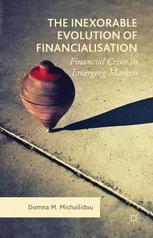

Most ebook files are in PDF format, so you can easily read them using various software such as Foxit Reader or directly on the Google Chrome browser.
Some ebook files are released by publishers in other formats such as .awz, .mobi, .epub, .fb2, etc. You may need to install specific software to read these formats on mobile/PC, such as Calibre.
Please read the tutorial at this link. https://ebooknice.com/page/post?id=faq
We offer FREE conversion to the popular formats you request; however, this may take some time. Therefore, right after payment, please email us, and we will try to provide the service as quickly as possible.
For some exceptional file formats or broken links (if any), please refrain from opening any disputes. Instead, email us first, and we will try to assist within a maximum of 6 hours.
EbookNice Team

Status:
Available4.8
18 reviewsSince the 2007 financial crisis, discussion on issues related to the size, spread and frequency of financial crises has captivated a wide variety of audiences. Why has the world economy experienced such a marked increase in financial transactions and private and public indebtedness since the 1980s? How have middle-income developing countries suddenly become a part of this dynamic? And, most importantly, how has the topic of financial crises been featured in households’ daily discussions in both developed and developing parts of the world?
Domna Michailidou addresses the questions above through exploring the inexorable evolution of financialisation into financial crisis through the examination of three middle-income countries: Mexico, Brazil and South Korea. Concentrating on emerging economies, and especially choosing three very different economies that all experienced financial crises in the 1990s, this book explores what lessons can be learnt regarding financial fragility, volatility and failure in the wake of capital market liberalisation.